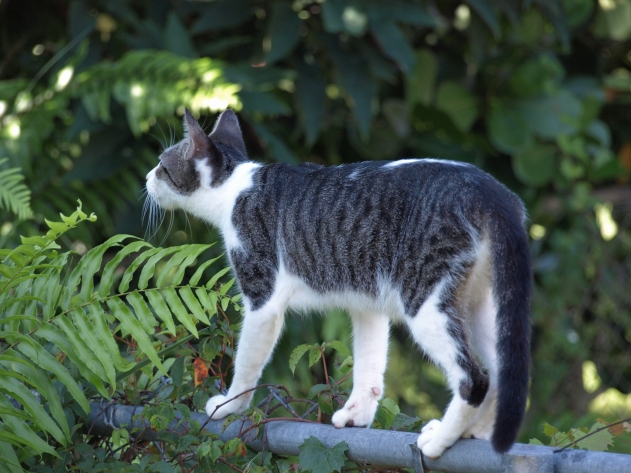Chiqa, a 3.5 year old short-haired Chihuahua, arrived at All Pets on emergency basis in early September after a rapid onset of startling neurological symptoms. Suddenly, she was walking in continuous counter-clockwise circles, tilting her head to the left, and suffering from partial paralysis of both legs on her left side. Several laboratory tests were Continue reading Chiqa Vs. Granulomatous Meningoencephalomyelitis
Tag: Disease
Oral Hygiene for Dogs
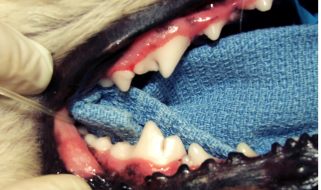 The oral cavity of dogs is a perfect incubator for all kinds of bacteria, partly because the mouth is warm, moist and has significant nutrients present for organisms to grow on. While most are normal and natural, once plaque and calculus (tartar) form on the teeth the normal microbial flora gets out of balance — and if pathogenic organisms proliferate, trouble ensues.
The oral cavity of dogs is a perfect incubator for all kinds of bacteria, partly because the mouth is warm, moist and has significant nutrients present for organisms to grow on. While most are normal and natural, once plaque and calculus (tartar) form on the teeth the normal microbial flora gets out of balance — and if pathogenic organisms proliferate, trouble ensues.
Fall Weight Management Tips for Your Pet
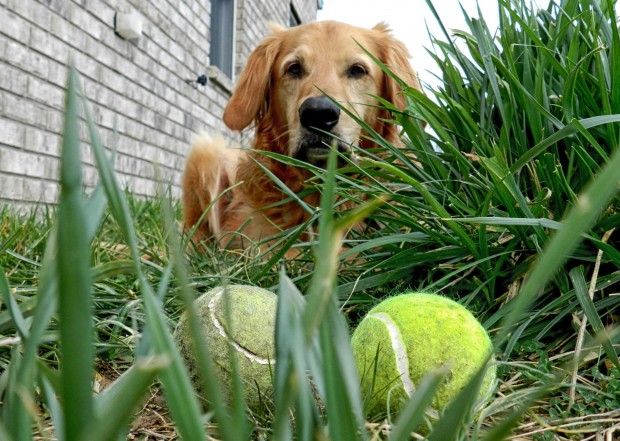 It is officially Fall! This means shorter days, changing leaves, a crisp breeze, football, holidays and food. And with food comes the seasonal weight gain. We seem to find more and more excuses to stay inside our homes as the temperature drops. Add this to the holiday celebrations with the natural tendency to crave comfort food for the colder months, and you have the perfect combination for seasonal weight gain.
It is officially Fall! This means shorter days, changing leaves, a crisp breeze, football, holidays and food. And with food comes the seasonal weight gain. We seem to find more and more excuses to stay inside our homes as the temperature drops. Add this to the holiday celebrations with the natural tendency to crave comfort food for the colder months, and you have the perfect combination for seasonal weight gain.
Overweight pets face many of the same health issues and concerns as people, including: heart disease, type 2 diabetes, bone and joint problems, various forms of cancers, and a shortened life expectancy, just to name a few. Fortunately, with a few simple modifications, you and your pet can avoid the seasonal weight gain.
Feline Rabies Treatment and Management
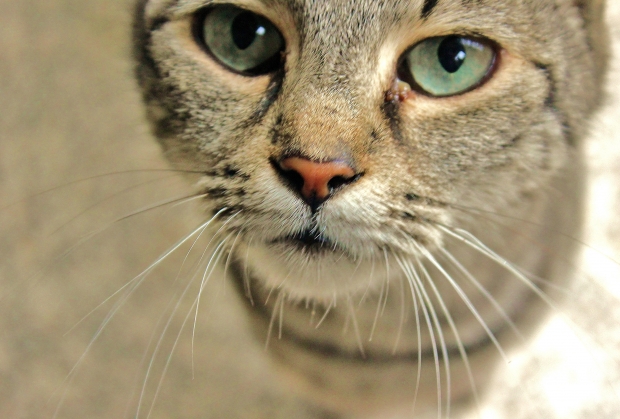 Feline Rabies is an inflammatory infection that specifically affects the gray matter of the cat’s brain and its central nervous system (CNS). The primary way the rabies virus is transmitted to cats in the United States is through a bite from a disease carrier: foxes, raccoons, skunks, and bats. Infectious virus particles are retained in a rabid animal’s salivary glands to better disseminate the virus through their saliva.
Feline Rabies is an inflammatory infection that specifically affects the gray matter of the cat’s brain and its central nervous system (CNS). The primary way the rabies virus is transmitted to cats in the United States is through a bite from a disease carrier: foxes, raccoons, skunks, and bats. Infectious virus particles are retained in a rabid animal’s salivary glands to better disseminate the virus through their saliva.
Once the virus enters the cat’s body, it replicates in the cells of the muscles and then spreads to the closest nerve fibers, including all peripheral, sensory and motor nerves, traveling from there to the CNS via fluid within the nerves. The virus can take up to a month to develop, but once the symptoms have begun, the virus progresses rapidly.
Intestinal Parasite Screenings for Cats
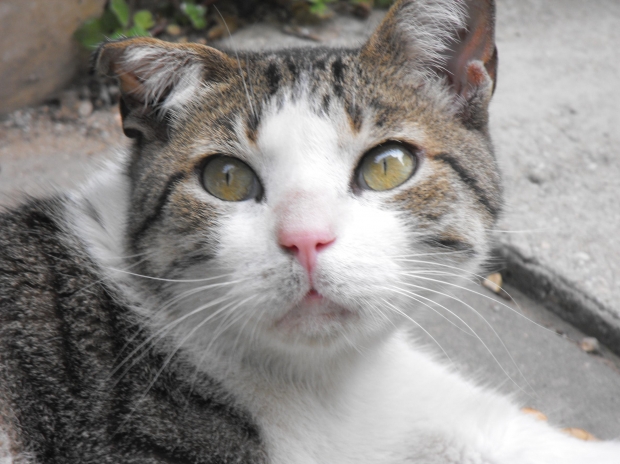 Parasites often go unnoticed because they are “silent”. Intestinal parasites that are more common have adapted so well to their hosts (your cat), that they are living in balance and cause no observational health issues. This can always change though, because when the parasites become too numerous the pet’s health is affected. The best approach, because of their silent nature, is to try to keep pets completely free of them before the balance becomes disturbed.
Parasites often go unnoticed because they are “silent”. Intestinal parasites that are more common have adapted so well to their hosts (your cat), that they are living in balance and cause no observational health issues. This can always change though, because when the parasites become too numerous the pet’s health is affected. The best approach, because of their silent nature, is to try to keep pets completely free of them before the balance becomes disturbed.
The Chemistry Panel in Dogs and Cats
Have you ever wondered what the normal values for the blood chemistry elements for dogs and cats are? Well, “normal” is actually quite relative. Every veterinary diagnostic lab and “in clinic” laboratory equipment will have its own set of calibrated values that are considered “normal”. So as to be expected, the “normal values” will vary.
Heartworms in Dogs: Facts and Myths
Leptospirosis Treatment and Management for Dogs
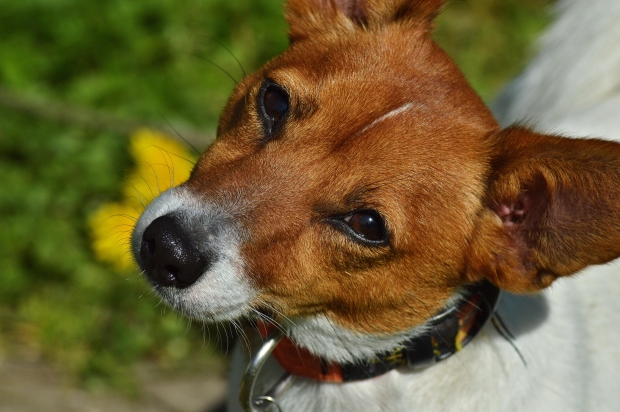 Leptospirosis is a disease that can be transmitted to humans and a small amount of other animals. It is an infection of bacterial spirochetes, which dogs acquire when subspecies of the Leptospira interrogans penetrate the skin and spread through the body by way of the bloodstream. If untreated, the disease can be fatal. In this article, I am going to discuss the the treatment and management options for Leptospirosis in dogs.
Leptospirosis is a disease that can be transmitted to humans and a small amount of other animals. It is an infection of bacterial spirochetes, which dogs acquire when subspecies of the Leptospira interrogans penetrate the skin and spread through the body by way of the bloodstream. If untreated, the disease can be fatal. In this article, I am going to discuss the the treatment and management options for Leptospirosis in dogs.
Continue reading Leptospirosis Treatment and Management for Dogs
Dental Care for All Pets
Do you avoid getting up close and personal with your pet’s breath? That bad breath is certainly unpleasant enough, but your pet could have a worse problem. Tartar buildup on teeth and inflamed gums can actually undermine your pet’s good health. This is why proper dental care is very important when it comes to your pet.











